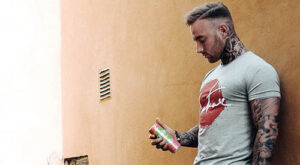Kenyans’ Unique Social Behaviour Amidst the COVID-19 Pandemic
December 31, 2019, will remain in the memory of the global citizenry for a long time. On the said date, the World Health Organization (WHO) received reports of several pneumonia-like cases of unknown causes in Wuhan City, Hubei Province, in the Peoples’ Republic of China. Medical research into the new cases by the National Health Commission of the Peoples’ Republic of China confirmed an outbreak of a new type of coronavirus, 2019 novel Coronavirus (2019-nCOV). The number of infections shot drastically across the globe.
Estimates by the Coronavirus Worldometer as of April 2, 2020, reported that the virus infected about 936,000, and about 48,000 had succumbed to the deadly scourge. The number of infections in Kenya was estimated at 80, with one death and three recoveries. The drastic rise in the number of diseases prompted a call to change social behaviour among Kenyan citizens.
The Coronavirus in the Informal Settlements
Being one of the poor and middle-income nations, Kenya developed and enforced control measures to mitigate COVID-19 spread in 2020. However, despite the enforcement of the coronavirus mitigation measures, scholars and social commentators point out that it is not clear to tie the current drop in infection rates and deaths with the country’s intervention measures. Through the Ministry of Health (MoH), the government argues that the control measures endeavour to minimize the movement of the respiratory pathogen when individuals interact in social gatherings.
While the government could estimate the rate of spread before and during the implementation of the control measures in affluent settlements such as posh neighbourhoods in Nairobi, there existed a challenge in achieving the same results in the informal settlements such as Kibera slums, where dwellers of the informal settlements rely on constant movement to maintain a practical living.
According to studies in the informal sectors, control measures such as social distancing and curfew enforcement reduced physical contact among the dwellers by about 63% and non-physical contact by approximately 65%. Individuals avoided social gatherings such as parties that before the outbreak of the coronavirus attracted large groups. The number of attendees to political rallies and meetings began to drop as new infection cases began to soar. It is critical to note that in some cases, the government was forced to apply force to achieve the primary objective of limiting direct physical interaction between and among residents of the informal sector. For example, during the initial stages of the enforcement of curfew, through its police unit, the government used teargas canisters to disperse individuals from engaging in daily socio-economic activities past the curfew hours.
Government advisory provided that using facemasks and maintaining a social distance of two meters helped reduce infection rates since it minimized the transfer of COVID-19-causing virus between individuals. Kenyans from the informal sector spent heavily on facemasks because they could be used only once, but this also immediately created a business opportunity for fashion designers and many tailors to come up with reusable/washable facemasks, which quickly got government endorsement and support.
Furthermore, unemployment rates increased since employers executed layoffs to correspond to the workforce with the prevailing market demands.
Therefore, Kenyans were faced with hard economic times and a push to spend on protective gear such as facemasks. Studies show that about 85% of Kenyans experienced a passive or total loss of income due to the coronavirus. Due to the prevailing financial constraints, about 75% of Kenyans reported eating less or skipped food because they could not afford to buy food. Cutting costs on non-emergency needs helped Kenyans in the formal sector to prepare psychologically for the unknown future.
Disruptions across the food chain
Small-scale retailers of perishable goods have been impacted by Covid-19. Their experiences are not unique: they reflect the disruption that is being experienced across entire supply chains. The farmer either cannot access the urban market or is afraid of selling in the urban market due to the risk of infection. The restrictions on movement, including a night curfew, meant that the input supplier had difficulty in reaching the farmer with the supplies. Wholesale consumers, such as schools, hotels and other institutions, either cut down on their orders or completely eliminated consumption.
This is leading to massive post-harvest losses for farmers with perishable produce. Similarly, small-scale retailers have lost markets to sell as the consumer has lost their purchasing power.
Faith in humanity. True “Ubuntu” spirit
Kenyans from all walks organized themselves in the pick of the COVID-19 last year, to share foodstuffs and other basic necessities with the less fortunate in their societies who were most hit from job layoffs, the heavy rains that flooded many parts of the country and got their houses destroyed. Many stories abound about this good-natured hearts, and social media was very central in keeping the general populace informed of what’s happening where. Up until now, there are very many people who are still pursuing this journey, touching the lives of their fellow Kenyans. May their taps keep running always.

Foodstuffs distributed to residents of Mukuru Kwa Reuben Slum, Nairobi amidst Covid-19.
“Kenyans on their own”?
″We are on auto-pilot. We are on our own. The government is not interested in containing COVID-19. Their key interest is changing the constitution through a referendum to entrench power,” said political activist Boniface Mwangi.
The right to health is guaranteed by the constitution “only on paper and not in deeds,” he said, pointing out fundraising drives on social media so that doctors in county hospitals can buy personal protective equipment.
Political rallies to popularize the referendum and campaign for the 2022 election, meanwhile, have been “super spreader events” that further burden the overstretched and neglected healthcare system, KMPDU chairman Samuel Oroko once said.
Impact of the Coronavirus on School Life
The coronavirus’s threat to the school-going children forced the government to temporarily halt the school calendar and send children home to allow for practical analysis of the health situation—the government shut down schools across the country. While the move presented an opportunity to curb the coronavirus’s spread, its pitfall existed in exposing children, mostly young adolescent girls, to ills such as early pregnancy. According to recent studies, about 153,000 girls became pregnant in the course of a three-month lockdown period. While the dedication to pursue their education remains steadfast among the affected teenage girls, it remains without a doubt that their approach towards life will remain altered for the rest of their life.
Halting Weekend Meet-Ups and Tusker Nights
Finally, like other humans across the globe, Kenyans are primarily social beings. Kenyans enjoy spending time with family and friends to catch up on past events and plan their future lives. Social interaction involves meeting in public places such as parks, hotels, and bars to party and break bread.
However, the coronavirus outbreak and its related high rate of spreading prompted the government to restrict social gatherings and meetings in public places. For example, through its public health sector, the government did not only advise Kenyans to close areas of social gathering such as bars and churches, but it also provided strict regulations on socio-cultural ceremonies such as burial and wedding ceremonies.
Rising living costs
The resulting income losses for a broad cross-section of Kenyans translate into lower purchasing power, and changes in consumer behaviour. Budgets in many households have been stretched to a breaking point. Food purchases have been reduced to focus on staples, which are generally cheaper, energy-dense, and can be stored for longer. Other coping mechanisms include reducing portion sizes, skipping meals, and eliminating more expensive food groups, such as meat and dairy products. Under such circumstances, it is unrealistic to expect these households to adhere to the nutrition guidelines on diet diversity.
The cost of transport and goods has risen for many people in Kenya, as businesses face the increased costs of implementing safety compliance measures while facing a drop in demand for services. As public transport vehicles may only operate at 50% of their passenger capacity, ticket fares have doubled. The cost of face masks, which is now mandatory for any person in a public place in Kenya, is also an expense which many households cannot afford.
Increased insecurity and social instability
As a result of reduced income, heightened livelihood stress, and decreased government capacity, crime incidents are rising across various neighbourhoods. Increased economic stress on vulnerable communities will lead to increased wildlife poaching (for bushmeat and ivory), particularly if reserves are forced to cut back on security investments. Road banditry, livestock theft and ethnic conflict incidents are all intensifying.
Gender-specific impact
Certain COVID-19 impacts are specifically experienced by women and girls. An increase in gender-based violence is being seen as a result of stringent containment procedures. Women face a high risk of contagion due to lack of potable water needed for hygiene measures. Women and girls carry the burden of water collection, as women in rural settings are the water bearers walking for long distances to fetch water. As women are typically marginalised in decision making and access to information, this leaves them with inadequate knowledge to cope with the pandemic effectively.
Lack of access to medical services and food insecurity is experienced by both males and females, but effects are intensified in the case of women, especially during pregnancy, childbirth and nursing.
The Return to School
After nine months out of school, the government, through the Ministry of Education, directed that students return to school to complete the academic year that was halted due to coronavirus. The school-going children’s return to school at the start of 2021 presents an opportunity for the government to monitor the situation on the ground and determine the viability of reducing restrictions on social activities across the country. It offers the country’s leadership an opportunity to prioritize more critical issues, such as enforcing efforts to improve access to health care services by all citizens across the country.













